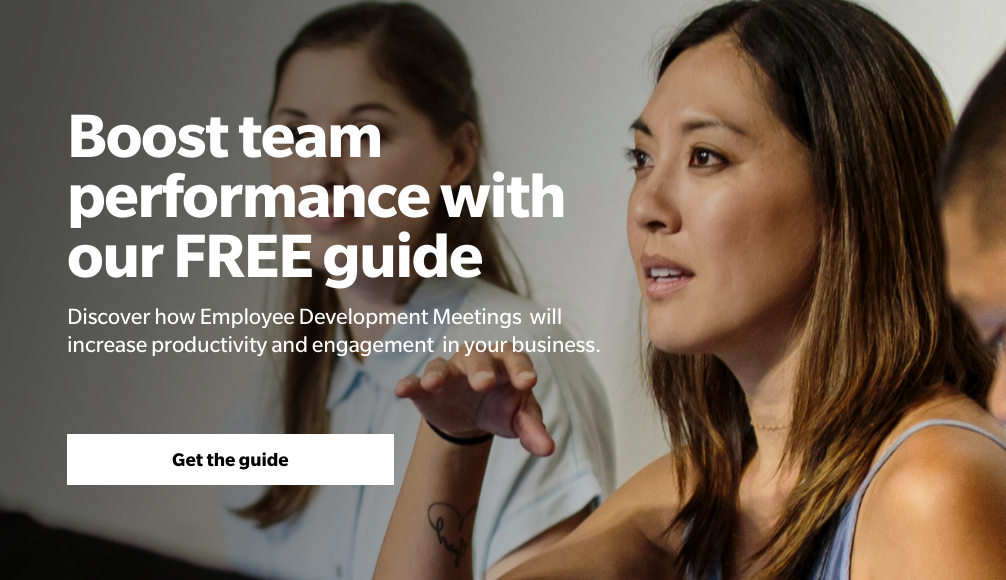Now is a particularly challenging moment to show up for and manage your people. As a business owner weathering a global economic crisis, you have so many demands on your time and focus—not least of which may be keeping your business financially afloat. So making sure your team has what they need to do their jobs and achieve the results that they’re responsible for can feel like too much to even think about, much less handle.
But here's why you need to prioritize it in order to create greater organizational alignment.
While you’re working to sustain your business through this unpredictable period, every member of your team is working to do the same—all while dealing with unexpected changes and personal stresses in their own lives. Just like you, they don’t have the time or energy to manage unclear expectations, guidelines or roles. And just like you, they need to feel connected to their team—even when they aren’t together physically. With these two tools, you’ll give your team both the clarity they need to do their jobs well and an opportunity to communicate and grow—even when so much feels unstable.
Create Organizational Alignment With Position Agreements
A Position Agreement is not a job description. It’s a written agreement between a manager and each reporting employee that outlines specific work the employee agrees to do as part of their job—and it’s organized so they know exactly what their responsibilities are.
Having a Position Agreement takes the guesswork out of their role, so they each have the clarity they need to do their jobs independently and work together, no matter what’s happening in your business. And it ensures you get the results you want.
Our guide Writing Position Agreements shares how to create this tool, as well as an example of how a thoughtful agreement should look.
Organizational Alignment and the Employee Development Meeting
The Employee Development Meeting (EDM) is a regularly scheduled meeting of 30–60 minutes between an employee and their direct manager. The one-on-one meeting serves a few key functions. It’s:
- A forum to talk, problem solve, resolve conflicts and create a plan that leaves your employees feeling listened to and empowered to take action.
- A time to discuss current work in order to make agreements for work to be accomplished, prioritize and discuss any exceptions, share relevant information, clarify procedures and results, and conduct other follow-ups related to the work.
- A coaching session that helps people stay on track and focus on their goals (both personal and professional), so their experience in your business becomes more positive and meaningful.
- A way to help you manage your employees and help you to help them get greater results in their work
EDMs give you an opportunity to continually remind your team members of your vision and work with them to focus their hopes and intentions on the future they want to create with your company and for themselves, which creates greater organizational alignment.
This is especially important at this moment when we’re all so focused on the present, on dealing with the problems right in front of us. It can be too easy to lose sight of the bigger picture—but it’s precisely that bigger picture that’s going to help you and your team find meaning in putting out the fires that exist today.
So ask each employee questions about what’s working and what isn’t. Model the open and trusting attitude you want your people to emulate. By giving your team room to discuss their work, performance and role in the company, you’re giving them an opportunity to enrich your vision with their own objectives.
Download our guide The Employee Development Meeting to read more about how EDMs work and to get a sample meeting agenda and discussion questions to get started.
Creating the systems your people need to achieve the results your business needs to grow is one of the most important things you can do to help your business today and in the long term.
Have you tried either of these processes in your business? How have they worked? Share your story or questions in the comments section below.




Comments